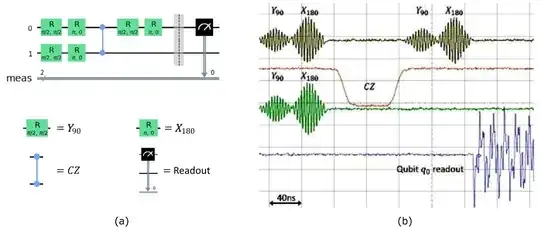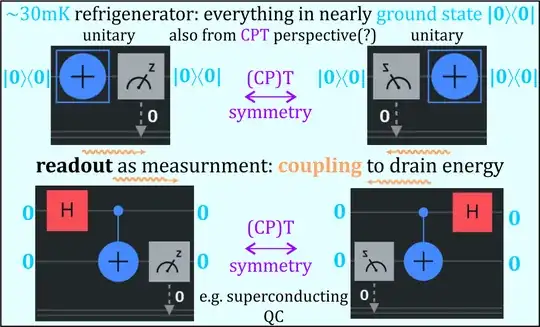The treatment of unused qubits is far from trivial, e.g. Shor requires "to uncompute" them - I wanted to ask what happens with qubits that are not measured in superconducting QC?
If I understand properly, in superconducting QC due to extremely low temperature we can assume the initial state is prepared as the ground state $|0\rangle$, then there is unitary evolution, and finally there is actively performed readout through coupling with additional resonators (readout/Purcell)?
But what happens with qubits for which we don't perform such readout? Looking from perspective of CPT symmetry, this extremely low temperature as mean molecule energy is the same, suggesting such no-readout qubits should be also fixed to the ground state, especially that there is no energy to excite it (in readout provided through coupling)?
So can these no-readout qubits be viewed as enforced to the ground state? (postpared to $\langle0|$)

